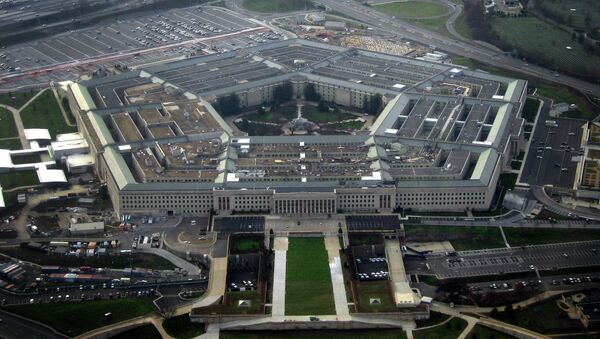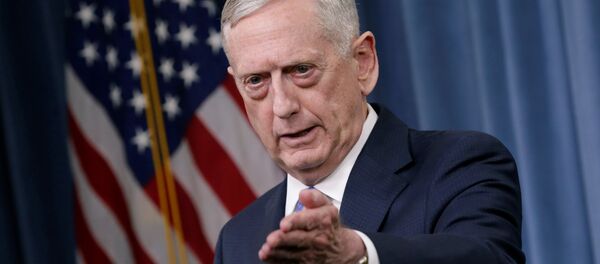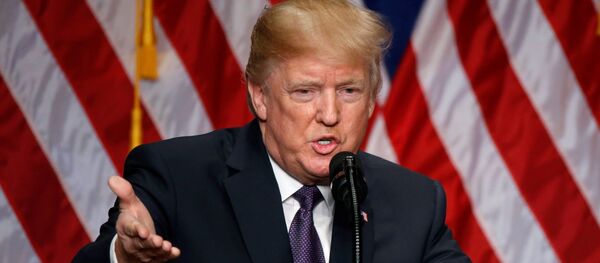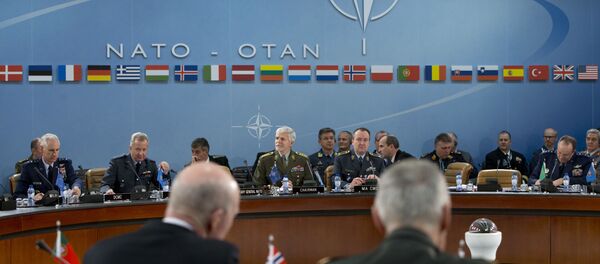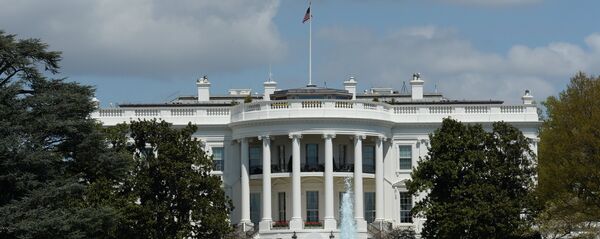"We will continue to prosecute the campaign against terrorists, but great power competition — not terrorism — is now the primary focus of US national security," Mattis said in prepared remarks released by the Pentagon.
Earlier on Friday, the Pentagon released the new National Defense Strategy, which emphasized that the United States will now focus on a long-term strategic competition with China and Russia.
In addition, the National Defense Strategy noted the United States is concerned about Russia’s decision to modernize and expand its nuclear arsenal.
Mattis explained the overall mission of the new National Defense Strategy is to enable the United States to remain a competitive superpower and prioritize preparedness for war.
The US Joint Forces Command will be focus its involvement in operations to stop aggression in three key regions: the Indo-Pacific, Europe and the Middle East, the National Defense Strategy said.
North Korea and Iran Fuel Regional Instability
Mattis said that rogue regimes like North Korea and Iran are taking actions that threaten the stability in their regions and around the world.
Tensions on the Korean Peninsula have escalated over past year as North Korea continued to conduct nuclear and ballistic missile tests while the United States amassed significant military assets in the region and conducted exercises. In November, Pyongyang tested its most advanced intercontinental ballistic missile and claimed the weapon is capable of hitting any part of the US mainland.
Moreover, US officials have repeatedly said Iran is funding terrorist organizations causing instability throughout the Middle East in addition to attacking US interests in Syria.
The new National Defense Strategy said the North Korean government seeks to ensure its survival and the ability to coerce neighbors by having a combination of conventional and unconventional weapons.
"North Korea seeks to guarantee regime survival and increased leverage by seeking a mixture of nuclear, biological, chemical, conventional and unconventional weapons and a growing ballistic missile capability to gain coercive influence over South Korea, Japan and the United States," the document said.
The strategy also noted that North Korea has "increased efforts short of armed conflict by expanding coercion to new fronts, violating principles of sovereignty, exploiting ambiguity and deliberately blurring the lines between civil and military goals."
US to Reinforce Efforts of Counterterrorism Operations
The United States will develop coalitions in Afghanistan, Iraq, Syria and other countries to build on the progress made against terrorist organizations as well as to counterbalance Iran’s influence over the region, the New Defense Strategy said.
Mattis noted that the caliphate of the Daesh terror group has been defeated, but violent extremist organizations continue to spread violence around the world.
"Despite the defeat of ISIS's [Daesh] physical caliphate, violent extremist organizations — like Lebanese Hezbollah, ISIS, and Al Qaeda — continue to show hatred, destroying peace and murdering innocents across the globe," Mattis said.
NATO to Focus on Confronting Russian Disruptions
The North Atlantic Treaty Organization (NATO) is set to deter Russia in Europe, and its commitment to Article 5 is essential to US security, the National Defense Strategy said.
The strategy emphasized that Russia has set its sights on disrupting NATO and altering the political and economic dynamic in Europe and the Middle East to further its own national interests.
In addition, the strategy said Russia is "now undermining the international order from within the system by exploiting its benefits while simultaneously undercutting its principles and ‘rules of the road.’"
US Modernizing Key Capabilities to Remain Superpower
Mattis pointed out that as part of the efforts to remain a competitive superpower, the United States will make investments in space and cyberspace as well as in nuclear and missile defense.
"We will modernize key capabilities," Mattis said. "Investments in space and cyberspace, nuclear deterrent forces, missile defense, advanced autonomous systems and resilient and agile logistics will provide our high-quality troops what they need to win."
The Defense Department will allocate funds for developing autonomous military technology, artificial intelligence and machine learning, to gain competitive military advantages, the strategy added.
Aside from weapon developments, Washington is also aiming to build a more lethal force by establishing new alliances with other countries, Mattis said.
Trump has repeatedly stressed the importance of providing the US military with adequate funding to build up its capabilities.

